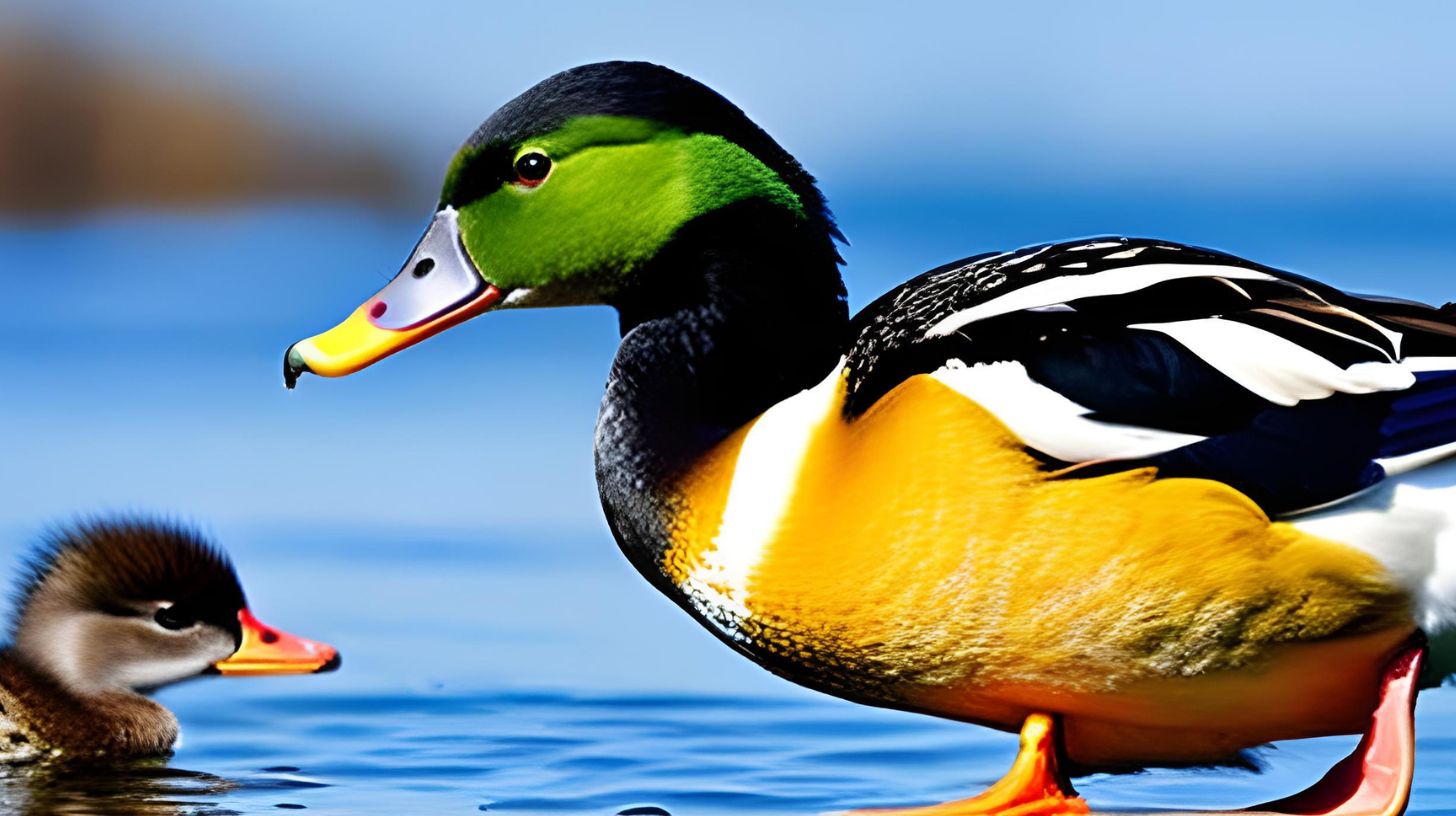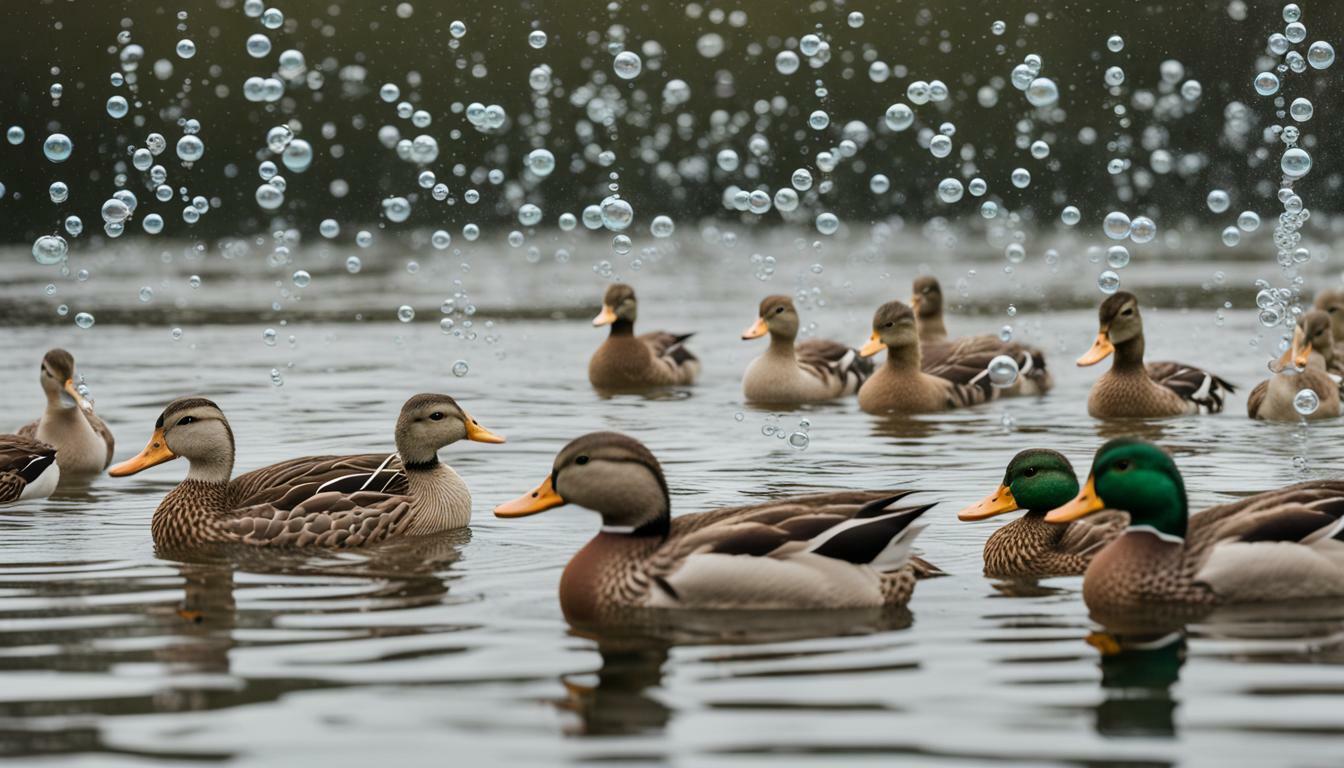Can Ducks Eat Squash? Nutrition and Feeding Guide
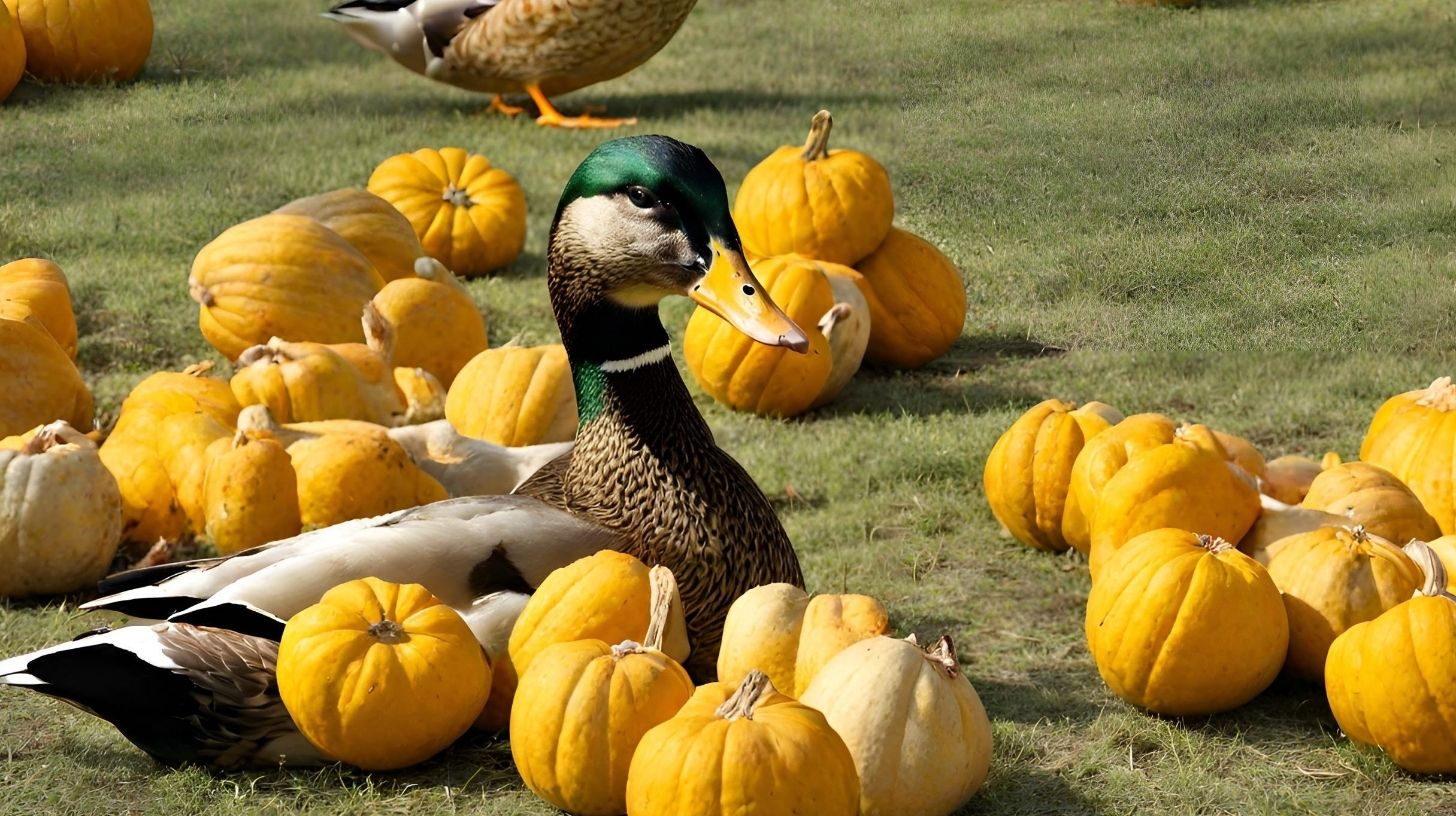
Table of content:
Can ducks eat squash? As it turns out, most varieties of squash make excellent treats and supplements to a duck’s diet. Squash provides important vitamins, minerals, and fiber that ducks need.
However, not all squash are created equal when it comes to nutritional value and safety for ducks. This comprehensive guide covers everything you need to know about feeding squash to ducks.
Key Takeaways:
- Squash provides beneficial nutrients like vitamin A, vitamin C, potassium, and fiber.
- Squash should be fed raw and finely chopped for ducks to digest it.
- Good squash for ducks include acorn squash, butternut squash, pumpkin, zucchini, yellow squash.
- Avoid overfeeding squash due to their oxalate content which can potentially cause health issues. Squash should be limited to occasional treats.
- Do not feed ornamental squash varieties or spoiled, moldy squash to ducks.
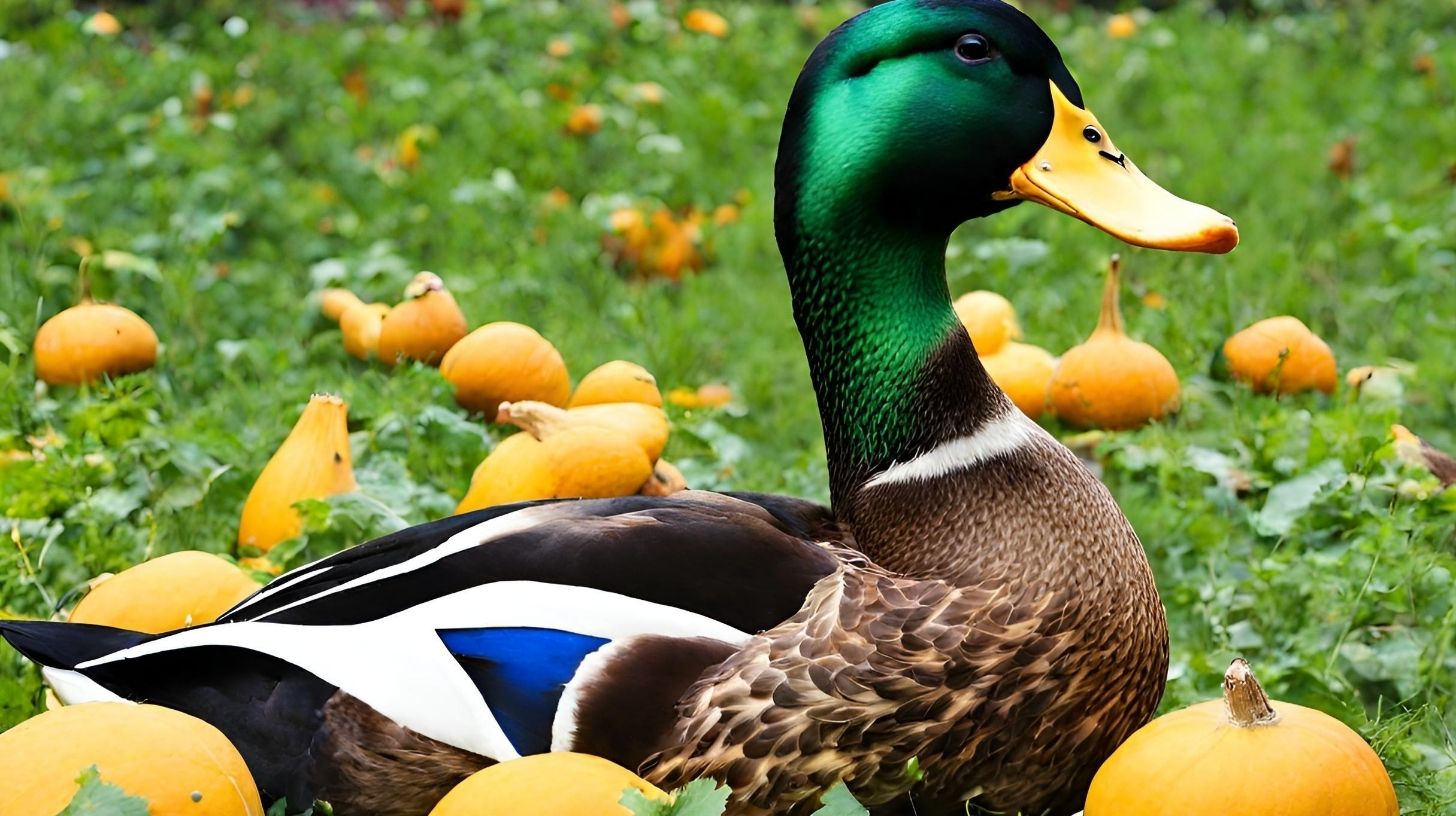 An Overview of Squash and Their Benefits
An Overview of Squash and Their Benefits
Squash refers to edible vegetable fruits that belong to the Cucurbitaceae family along with cucumbers, melons, and gourds. Some common varieties of squash that ducks can eat include:
- Acorn squash – Has a sweet, nutty flavor. High in vitamin C and fiber.
- Butternut squash – Sweeter, similar to pumpkin. Rich in vitamin A, C, magnesium, potassium.
- Pumpkin – Closely related to squash. High in vitamin A and fiber. Has seeds ducks can eat.
- Yellow squash/summer squash – More watery than winter squash. Contains vitamin C, magnesium, folate.
- Zucchini – A type of summer squash. High in manganese, vitamin C, fiber. Has a mild flavor.
Squash contain a wealth of important vitamins, minerals, and nutrients. This includes:
- Vitamin A – Important for ducks’ eye health and immune system. Found in orange and yellow squash.
- Vitamin C – Boosts immune system and collagen formation. Present in most squash varieties.
- Potassium – Needed for fluid balance and nerve transmission. Abundant in winter squash.
- Magnesium – Vital mineral for bone health and enzyme function. High levels in seeds and flesh.
- Fiber – Improves digestion and gut health. Found in skins and flesh of squash.
Squash also provide carotenoids like lutein and zeaxanthin which have antioxidant effects. Their bright orange and yellow flesh indicates rich levels of these beneficial plant pigments.
In addition to vitamins and minerals, squash offer ducks fibrous plant material important for their digestion. Ducks swallow food whole, so eating squash provides gritty fiber that helps grind up other foods in their gizzard.
Nutrient content of common squash varieties
| Squash Variety | Beneficial Nutrients |
|---|---|
| Acorn squash | Vitamin C, potassium, fiber |
| Butternut squash | Vitamin A, potassium, magnesium |
| Pumpkin | Vitamin A, fiber |
| Yellow squash | Vitamin C, folate |
| Zucchini | Manganese, vitamin C |
Feeding Raw Squash is Ideal
Squash should always be fed to ducks raw rather than cooked. Raw squash retains more of its nutrients and fiber content compared to cooking. Cooking softens up the flesh, which reduces the beneficial grittiness of squash for a duck’s digestion.
Before feeding squash, it needs to be chopped into small, bite-sized pieces. For smaller duck species, squash should be grated or finely diced into tiny portions. Even large chunks of raw squash can pose a choking hazard or be difficult to swallow for ducks.
Always monitor ducks closely when introducing new foods like squash. Make sure they are able to swallow it safely. Ducks that struggle to eat raw squash may need it grated into smaller bits or have the seeds removed.
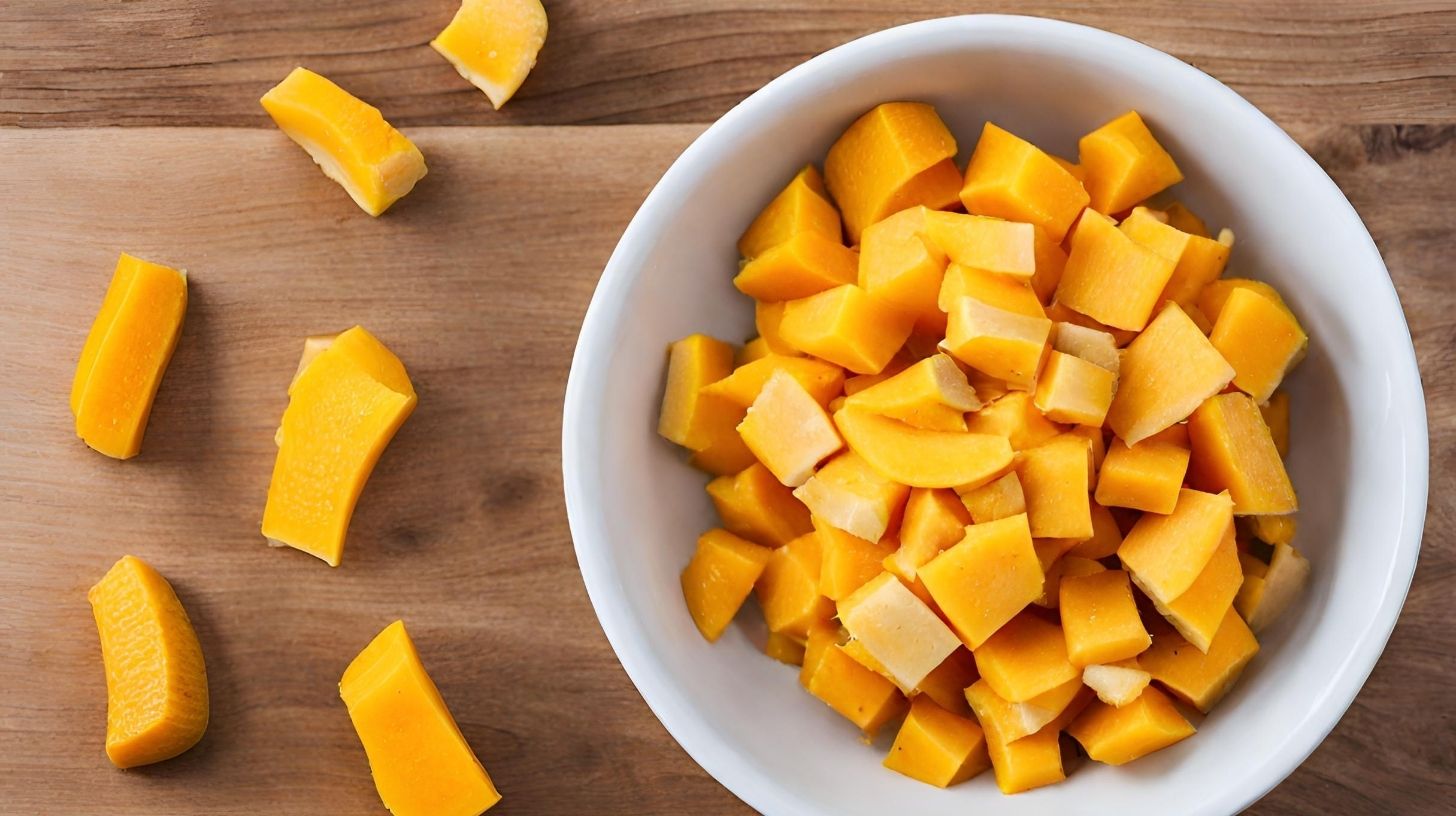 Healthy Squash Options for Ducks
Healthy Squash Options for Ducks
Many common varieties of winter and summer squash make great occasional treats for ducks. Here are some of the best options:
Acorn Squash
With its tough outer rind and sweet, tender inner flesh, acorn squash provides an excellent source of fiber and nutrients for ducks. Its small size with edible skin makes it simple to chop into duck-friendly pieces. Feed squash raw, along with seeds for texture.
Butternut Squash
Butternut squash has a long shelf life which makes it readily available year-round. Its bright orange flesh is packed with vitamin A and carotenoids. Chop the neck off whole squash, then peel and cube the remaining flesh into bite-size bits for ducks.
Pumpkin
As a winter squash, pumpkin has a tough skin that provides insoluble fiber. Its flesh and seeds are rich in vitamin A, vitamin C, potassium, and magnesium. Fresh pumpkin or canned plain pumpkin both make suitable treats.
Yellow Squash/Zucchini
The thinner skins and softer flesh of yellow squash and zucchini make them fast and easy to chop up small for ducks. Their mild flavor and high water content help provide extra hydration.
Other Summer Squash Varieties
Crookneck, pattypan, and other summer squash offer similar benefits to zucchini. Their skins are edible and contain seeds ducks can safely eat. Chop all types of summer squash into quarter-inch cubes before feeding.
Healthy squash for ducks
| Type of Squash | Parts to Feed | Chopped Size |
|---|---|---|
| Acorn squash | Flesh and seeds | 1⁄4 inch cubes |
| Butternut squash | Flesh only | 1⁄4 inch cubes |
| Pumpkin | Flesh and seeds | 1⁄4 inch cubes |
| Yellow squash | Whole squash | 1⁄4 inch slices |
| Zucchini | Whole squash | 1⁄4 inch slices |
Squash Plant Parts to Avoid
While squash fruits are ideal for ducks, other parts of squash plants should be avoided. Here’s what to steer clear of:
- Ornamental squash – Squash varieties grown for decoration rather than eating. These lack nutrients and may contain toxins. Only feed edible types of squash.
- Old, spoiled squash – Squash that is overripe or has mold/fungus growing on it can make ducks sick. Only feed fresh, unspoiled squash.
- Stems, vines, and leaves – The foliage of squash plants contains harmful compounds called cucurbitacins that can be toxic. Do not feed any squash plant parts other than the fruit.
- Raw seeds – Whole, raw squash seeds are difficult for ducks to digest properly. Always remove seeds or chop squash small enough that seeds are broken down.
- Squash skins – Tough outer rinds from thick-skinned winter squash may pose a choking risk or obstruct a duck’s digestive tract if not chopped finely enough. Peel thick skins or cut into very small pieces.
Squash Allergens and Anti-Nutrients
Two compounds found in squash deserve special caution when feeding ducks:
Oxalates – All squash contain oxalic acid, but levels are highest in yellow summer squash, pumpkin, and zucchini. Oxalates can bind to calcium and potentially cause kidney stones and other issues if fed excessively.
Goitrogens – Found in cruciferous veggies like pumpkin, cruciferous compounds may impact thyroid function if fed daily in large amounts. Avoid overfeeding pumpkin and consult a vet if ducks show thyroid issues.
To reduce the risks from these anti-nutrients, squash should be fed in moderation as occasional treats, not daily diet staples. Provide a variety of fruits and vegetables so oxalates and goitrogens are diluted out.
Recommended Feeding Frequency
Squash are best served as supplemental treats no more than 1-2 times per week for ducks. The high fiber and anti-nutrient content of squash mean they should not make up a substantial portion of a duck’s diet.
Watch ducks’ droppings after feeding squash. Loose stools or changes in urates/coloring may be a sign they are not tolerating a particular variety well. Each individual duck may have differences in how well they digest different types of raw squash.
For young ducklings, hold off on feeding squash until they are fully feathered (around 5-7 weeks old) since their digestive systems are still developing. Even once mature, ducks do not require fruits like squash to thrive, so only feed small amounts occasionally.
Combining Squash with Other Foods
To balance out a meal, consider mixing small cubes of raw squash with:
- Leafy greens – Spinach, kale, swiss chard, lettuce provide moisture and important vitamins.
- Sprouted grains – Duck-friendly whole grains like oats, wheat berries, barley contain complementary amino acids.
- Chopped veggies – Squash, zucchini, carrots, bell peppers add color, vitamins and texture.
- Tubers – Potatoes, sweet potatoes, yams offer complex carbohydrates.
- Legumes – Peas, beans, lentils are excellent protein sources. Sprout prior to feeding.
This creates a nutritionally complete meal for ducks with a variety of textures and flavors. The high fiber squash balances out easily digestible greens and grains.
Summary of Squash for Ducks
In moderation, squash are a healthy supplemental food for ducks that provide important vitamins, minerals, antioxidants, and fiber. Stick to raw, chopped bits of winter and summer squash varieties to safely feed ducks. But avoid overdoing squash since they contain anti-nutrients like oxalates. Feed squash no more than 1-2 times per week as part of a balanced diet. With some common sense precautions, squash make a beneficial addition to a duck’s nutritional variety.
Frequently Asked Questions
Can I feed ducks all types of raw squash?
No. Only feed varieties grown for human consumption, not ornamental squash. Avoid excess feeding of high oxalate types like yellow summer squash.
Do I need to cook or boil squash before feeding ducks?
No, raw squash is ideal as boiling reduces nutrition and fiber content. Always chop raw squash into small, bite-size pieces before feeding.
Is pumpkin a healthy squash for ducks?
Yes, fresh pumpkin flesh and seeds are an excellent occasional treat due to high vitamin A content. But avoid overfeeding due to the goitrogens found in pumpkins.
How much raw squash should I feed ducks?
Squash should be an occasional treat, no more than 1-2 times per week. Around 1 cup of chopped squash pieces per 2-3 adult ducks is adequate. Adjust amounts based on ducks’ tolerance.
Can baby ducks eat squash?
Hold off on feeding raw squash until ducklings are fully feathered, around 5-7 weeks old. Their digestive systems need time to mature before they can properly handle high-fiber produce like squash.
Conclusion
Overall, squash provide valuable nutritional variety to a duck’s diet when fed in moderation. Focus on raw, fresh, chopped bits of winter and summer squash. Avoid overfeeding high-oxalate varieties or pumpkin every day.
Introduce squash slowly and be attentive to any changes in droppings as indicators of individual tolerance. Along with leafy greens, sprouted grains, and insects, occasional squash make great supplemental treats for ducks to provide carotenoids, vitamins and gritty fiber.
Welcome. I’m Adreena Shanum, the proud owner of this website, and I am incredibly passionate about animals, especially poultry. I founded adreenapets.com as a labor of love, stemming from my desire to share my knowledge and experiences with poultry enthusiasts worldwide.



